Where to Buy Insecticidal Soap: Comprehensive Guide
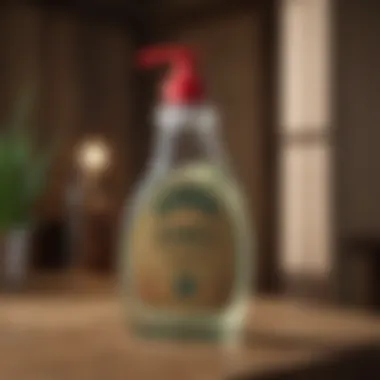
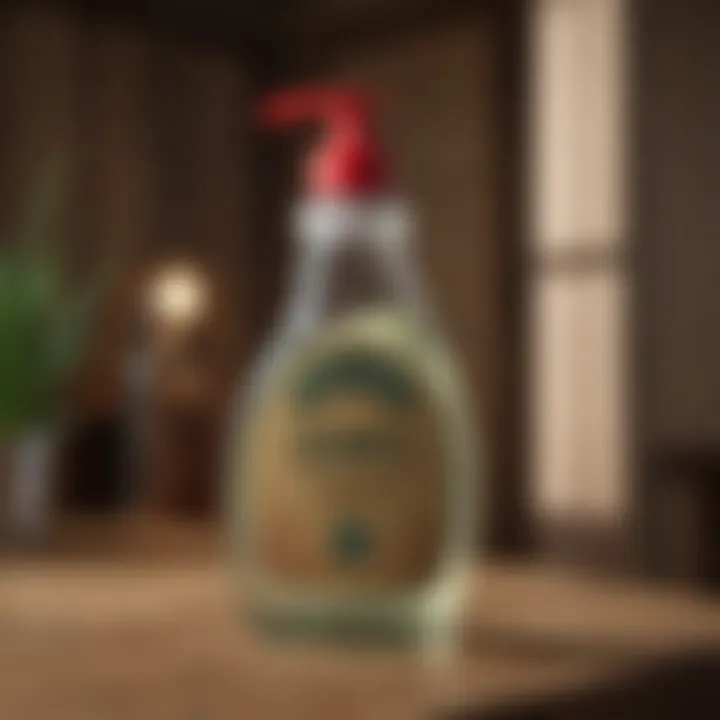
Intro
Insecticidal soap is a key tool for pest management in agriculture and horticulture. This article aims to provide a comprehensive guide on locating and purchasing insecticidal soap, shedding light on its various types, suppliers, and best practices for use. Understanding how to effectively incorporate this product into a pest management strategy can greatly enhance sustainability in gardening and farming practices.
Topic Overview
Definition of Key Terms
Insecticidal soap is a pesticide made from natural plant oils and fats. It functions by suffocating soft-bodied insects such as aphids and spider mites, thus interrupting any feeding behavior. It is important to note that insecticidal soaps are typically classified as a low-toxicity option, making them favorable for organic farming and environmentally conscious gardening.
Relevance in Agriculture, Horticulture, and Agronomy
The relevance of insecticidal soap extends beyond mere pest eradication. Its significance lies in its compatibility with various agricultural practices, making it suitable for both commercial and home gardening. By using insecticidal soap, growers can manage pests without relying on more harmful synthetic pesticides. This practice contributes to healthier ecosystems and supports sustainable agricultural practices. Furthermore, using insecticidal soap allows for rapid integration of integrated pest management strategies.
Current Trends and Innovations
Recent Advancements in the Field
As the demand for organic products increases, so does the interest in biopesticides. Recent advancements in insecticidal soap formulations focus on improving efficacy while maintaining safety for beneficial insects. Manufacturers are now incorporating additional natural ingredients to enhance the overall effectiveness of their products.
Emerging Technologies and Practices
Emerging technologies include the use of precision agriculture to determine optimal application times for insecticidal soap. By utilizing data from sensors and monitoring systems, farmers can apply the soap more effectively, reducing waste and improving pest control outcomes. Furthermore, research in natural additives helps create specialized formulas for certain types of pests, further refining pest management strategies.
Practical Applications
Step-by-Step Guides or How-Tos
- Identify the Pest: Begin by accurately identifying the pest you are dealing with. Understanding the specific pest can help in selecting the appropriate insecticidal soap.
- Choose the Right Product: Select an insecticidal soap that is suitable for your plants and the specific pests you are targeting. Ensure it is registered for use on your crop.
- Test a Small Area: Before widespread application, test the soap on a small area of the plant. This helps to ensure that no adverse reactions occur.
- Application: Apply insecticidal soap in the early morning or late afternoon to avoid plant stress from direct sunlight. Ensure thorough coverage, focusing on the undersides of leaves where pests often reside.
- Monitor Effectiveness: After application, monitor the treated plants for improvements or signs of pest resurgence.
Tips and Best Practices for Implementation
- Always read and follow the label instructions. Each product has specific guidelines that must be adhered to for effective results.
- Reapply as necessary, especially after rainfall or significant watering, as soap can wash off.
- Keep records of applications and observations to help refine future pest management approaches.
"Insecticidal soap is not just a remedy. It is a part of a broader integrated pest management strategy which encourages sustainable agriculture practices."
By understanding the various aspects of purchasing and using insecticidal soap, farmers and gardening enthusiasts can significantly enhance their pest management strategies while promoting environmental well-being.
Prelims to Insecticidal Soap
Insecticidal soap has gained significant traction among farmers and gardening enthusiasts for its effectiveness in pest management. This section serves to illuminate the crucial elements of insecticidal soap, focusing on its definition, composition, and inherent advantages. Understanding these fundamentals provides a foundation for readers to make informed decisions when considering insecticidal soap as a solution for their pest problems.
Definition and Composition
Insecticidal soap is a contact pesticide primarily composed of naturally occurring fatty acids and lipids. These components are derived from plant or animal fats and oils, making the product generally safe for use in both gardens and agricultural fields. The soap acts by disrupting the cellular membranes of soft-bodied insects like aphids, spider mites, and whiteflies. The disruption ultimately leads to the pest's dehydration and death.
Effective formulations typically contain at least 1-3% active ingredient concentration. Some commercially available products include additional components, such as essential oils and surfactants, which enhance the efficacy of the soap against pests.
Effectiveness Against Pests
The effectiveness of insecticidal soap largely hinges on its application timing and method. When applied directly to the targeted pests, it can quickly immobilize or kill them. It is particularly effective against soft-bodied insects, as previously mentioned.
However, it's essential to understand its limitations. Insecticidal soap does not provide residual control, meaning it does not persist in the environment to prevent future infestations. Farmers and gardeners should anticipate the need for repeated applications, especially in cases of severe pest pressure. For optimal results, it is advisable to apply insecticidal soap in the early morning or late evening, reducing the risk of harm to beneficial insects and minimizing evaporation loss in hot conditions.
"Insecticidal soap functions on contact. It is vital to ensure even coverage over the affected plants for best results."
Additionally, combining insecticidal soap with other pest management practices can enhance overall effectiveness. Practices such as crop rotation, maintaining plant health, and integrating biological controls will complement the use of insecticidal soap in creating a holistic pest management strategy.
Types of Insecticidal Soap
Understanding the different types of insecticidal soap is crucial for effective pest management. Each type serves specific needs and has varying levels of effectiveness against different pests. The main distinction lies between commercial formulations and DIY recipes. Both options have their place in a gardener's toolkit.
Commercial Formulations
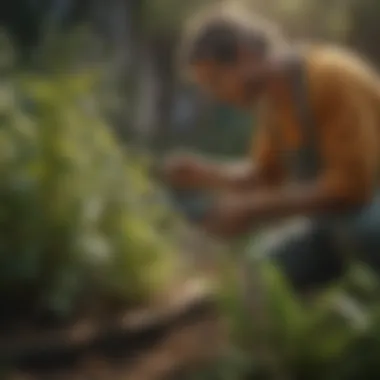
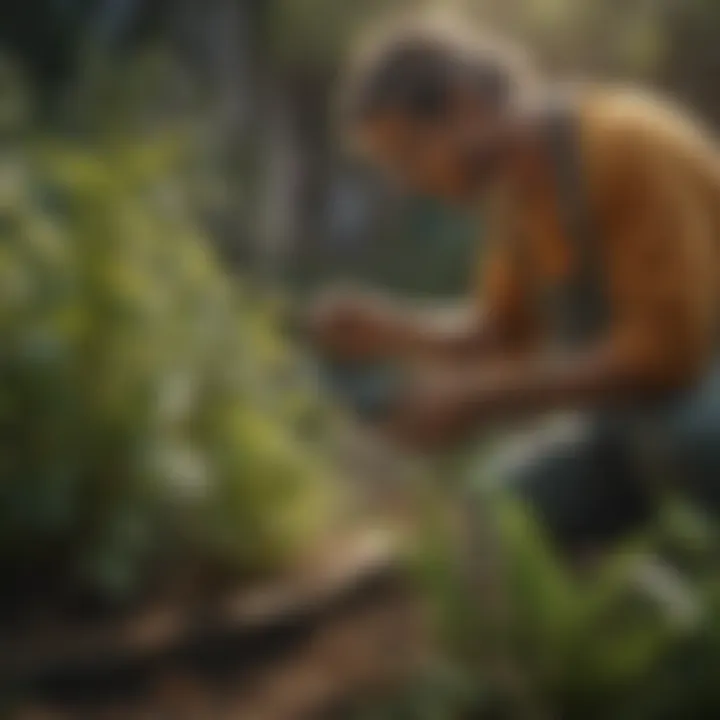
Commercial insecticidal soaps are products manufactured by companies and sold for agricultural use. These products are often ready-to-use, which makes them convenient for immediate application. They usually contain a specific concentration of active ingredients, which are designed to target various pests.
Benefits of using commercial formulations include:
- Consistency in Quality: These products undergo rigorous testing, ensuring that they meet safety and efficacy standards.
- Variety of Options: Manufacturers offer formulations tailored for different types of pests. This can be useful for targeting specific outbreaks in your garden or crops.
- Application Convenience: Most commercial products come in user-friendly bottles or spray cans, allowing for easy application.
However, while these products provide convenience, it is essential to read labels carefully for instructions on safe and effective use. Some formulations may contain additional preservatives that can affect sensitive plants, so choose wisely based on your garden’s specific needs.
DIY Insecticidal Soap Recipes
Creating your own insecticidal soap can be a rewarding experience. DIY options can be both cost-effective and tailored to individual pest problems. Basic recipes typically contain simple ingredients that may already be in your home.
Basic Recipe:
- Ingredients:
- Mixing Instructions:
- Application:
- Liquid soap (not detergent – use Castile or pure soap)
- Water
- Combine 1 to 2 tablespoons of liquid soap with one quart of water.
- Shake well before use and spray directly on affected plants. Avoid the hottest part of the day to prevent leaf burn.
Advantages of DIY recipes include:
- Customization: Adjust the concentration based on the severity of the pest issue.
- Inexpensiveness: Using common household items can substantially lower costs.
- Control of Ingredients: You can avoid certain chemicals that may be present in commercial options.
Despite the benefits, DIY insecticidal soap requires attention to detail. Miscalculating soap-to-water ratios can result in ineffective treatments or even harm the plants. Keep in mind that while DIY solutions can be effective, they may not always match the potency of commercial formulations, especially for severe infestations.
Factors to Consider When Buying Insecticidal Soap
When selecting insecticidal soap, understanding specific factors can greatly improve pest management effectiveness. This section highlights key considerations that will aid in making informed decisions. Each element will ensure that the selected product aligns with both the needs of the plants and the types of pests being targeted.
Pest Target
The choice of insecticidal soap should primarily depend on the type of pests being addressed. Different formulations may be more effective against certain insects. For example, aphids, mites, and whiteflies are commonly managed with insecticidal soap. It is essential to review product labels and descriptions to ensure compatibility with the pest species present in your garden.
The effectiveness of an insecticidal soap often relies on its formulation and the active ingredients. Products containing potassium salts of fatty acids are typical components known for their efficacy. Therefore, assessing the specific target pest aids in selecting the most appropriate product.
Plant Type and Sensitivity
Different plants exhibit various levels of sensitivity to chemical and natural treatments. When purchasing insecticidal soap, consider the plant species involved. Certain plants may harbor specific sensitivities, leading to adverse reactions. For example, delicate herbs and some ornamental plants may suffer damage even from milder solutions.
Conduct a small patch test on a single leaf to observe any potential negative effects before applying the soap widely. Make comparisons between products regarding their formulation to find ones that are safe for your particular plants. Additionally, keep in mind that some manufacturers specifically state which plants are safe to treat.
Environmental Impact
Sustainability is a significant concern in agriculture and gardening. Insecticidal soap generally has a minimal environmental impact compared to synthetic pesticides. Nevertheless, assessing the product’s overall ecological footprint remains crucial.
Look for certifications or labels that indicate environmentally-friendly practices, such as those approved by the Environmental Protection Agency (EPA) or other relevant regulatory bodies. Moreover, consider the implications of runoff or potential harm to beneficial insects like pollinators and predatory insects that may help manage pest populations naturally.
Monitoring local conditions like weather and soil health can also provide insight into both the effectiveness of the treatment and its ecological impact.
Important Note: The wrong application of insecticidal soap can damage learned beneficial insects and disrupt the local ecosystem. Always assess insect chemistry and ecosystem before application.
Where to Purchase Insecticidal Soap
Understanding where to purchase insecticidal soap plays a crucial role in effective pest management. The accessibility of this product can significantly influence a gardener's or farmer's ability to tackle pest issues promptly. Insecticidal soap is valued for its role in integrated pest management, providing a non-toxic option for controlling pests. Knowing various purchasing sources helps users assess convenience, cost, availability, and sustainable practices. Each venue offers unique advantages, and exploring these options ensures that one can make informed decisions based on individual needs and local conditions.
Local Garden Centers
Local garden centers are often the first stop for gardeners looking for insecticidal soap. These centers tend to have a well-curated selection of gardening products tailored to the local climate and plant types. Shopping at a local garden center allows for immediate access to products without the wait time associated with online orders.
Furthermore, knowledgeable staff typically work at these centers, offering valuable advice on effective use, application techniques, and safety guidelines. This hands-on support may be especially beneficial for beginners. To find the right product, inquire about the specific pests you aim to control, and the staff can guide you to suitable options.
Agricultural Supply Stores
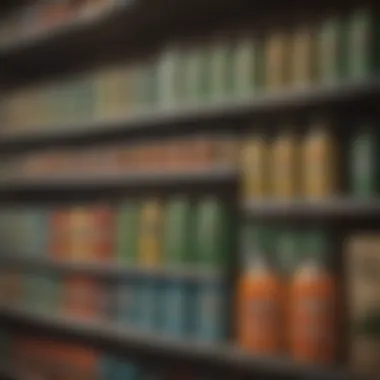

Agricultural supply stores cater to larger scale farming operations and professionals. They usually stock various formulations of insecticidal soap, including potent commercial varieties designed for high-volume use. These stores not only offer bulk purchasing options but also typically provide products that meet agricultural regulations.
In addition, agricultural supply stores often have complementary goods that may enhance pest control measures, such as sprayers and protective equipment. A significant advantage of purchasing here is the ability to consult with experts who understand the nuances of agricultural practices and can provide tailored guidance based on specific crop types.
Online Retailers
Online retailers provide a convenient way to shop for insecticidal soap, often featuring a wider selection than local stores. Platforms like Amazon, Walmart, and specialty gardening websites allow users to compare products easily. Such convenience is advantageous for those who may not have direct access to local options or for those who prefer the comfort of home shopping. Additionally, online retailers frequently provide user reviews, which can help assess the effectiveness and satisfaction levels of various insecticidal soaps.
However, it’s essential to consider shipping times and costs when opting for online purchases. Ensure to check product availability and read labels carefully for suitability to your needs before commitment.
Cooperative Extensions and Agricultural Agencies
Cooperative extensions and agricultural agencies play a vital role in educating farmers and gardeners about pest management. Many of these agencies offer resources not only about where to purchase insecticidal soap, but they may also sell it directly or recommend locally owned options.
These organizations provide research-based information, ensuring that the soap recommended is effective and compliant with local regulations. Utilizing such resources can enhance the purchasing decision as they may also help users navigate safety considerations, including proper application and environmental impacts. Involving local experts ensures that gardeners and farmers can make purchases that align with best practices for sustainable agriculture.
Cost Considerations
Understanding the cost of insecticidal soap is crucial for farmers and gardening enthusiasts alike. With various brands and formulations available, knowing what you spend can significantly shape your pest management strategies. Cost considerations encompass various factors, including the type of product, size of the container, and potential savings from bulk purchases. This section will delve into the price ranges associated with different insecticidal soap brands and the benefits of buying in larger quantities. By being aware of the financial aspects of these products, individuals can make informed decisions that align with their budgets and pest control needs.
Price Range of Different Brands
When considering which insecticidal soap to purchase, it's important to be aware of the price range across various brands. Prices can vary based on formulation, brand reputation, and container size. Here are some points about the cost:
- Budget Options: Generic or lesser-known brands may offer insecticidal soaps priced between $10 and $15 for a quart-sized bottle. These products can still be effective and are useful for small gardens or light pest issues.
- Mid-Range Options: More recognized brands like Safer Brand and Monterey may range from $15 to $30 per quart. These options may have additional benefits, such as being more effective against a wider range of pests or having added ingredients that improve performance.
- Premium Formulations: Specialized or organic insecticidal soaps can cost upwards of $30. Brands such as Garden Safe or Neem Oil might appeal to those looking for more targeted approaches to pest control or who prioritize environmentally friendly products.
Considering these price points enables consumers to assess their needs and find suitable insecticidal soap without overspending.
Bulk Purchase Discounts
Buying insecticidal soap in bulk can prove to be a financially wise decision, especially for those with larger gardens or persistent pest problems. Many retailers and online platforms offer discounts when purchasing multiple containers or larger volumes, making it a more economical approach.
- Cost Savings: Discounted prices for buying in bulk can reduce the overall cost significantly, sometimes saving over 20% compared to buying single bottles. This can be particularly beneficial for commercial agricultural use.
- Convenience: Having larger quantities on hand means that pest management can be addressed promptly without repeated trips to the store. This preemptive action can help in maintaining healthier plants and enhancing yield.
- Environmental Consideration: Bulk buying often results in less packaging waste. This is an added benefit since environmentally-conscious consumers may seek ways to reduce their carbon footprint while managing pests effectively.
In summary, astute financial planning regarding the purchase of insecticidal soap allows for better pest control strategies while staying within budget. Evaluating the price range of products and considering bulk purchase options can lead to smarter yields and healthier plants.
Safety and Application Guidelines
Understanding the safety and application guidelines for insecticidal soap is essential for optimal use and effectiveness. This section focuses on three core areas: personal protective equipment, best application practices, and storage and disposal concerns. Ensuring these practices can not only maximize the benefits of insecticidal soap but also minimize any potential risks to users and the environment.
Personal Protective Equipment
When applying insecticidal soap, personal protective equipment (PPE) plays a crucial role in safeguarding the user. Effective use of PPE can reduce exposure to chemicals and enhance the safety of the application process. Recommended items include:
- Gloves: To protect skin from direct contact with insecticidal soap.
- Safety Glasses: To shield eyes from splashes when spraying.
- Long Sleeves and Pants: These clothing items reduce the risk of skin exposure.
Using PPE every time you handle insecticidal soap minimizes adverse effects and provides peace of mind during applications.
Best Application Practices
Effective application of insecticidal soap hinges on proper techniques. Following best practices can lead to better pest control and reduce potential harm to beneficial insects. Here are a few key tips:
- Timing: Apply insecticidal soap during calmer weather to avoid drift and ensure coverage directly onto pests.
- Targeting: Spray directly onto the pests, ensuring even coverage on affected plants.
- Concentration: Always follow the recommended dilution rates provided by the product label to avoid burn to plants.
For maximum effectiveness, these practices should be adhered to at all times, aligning with the insecticidal soap’s properties to manage pests efficiently.
Storage and Disposal Concerns
Proper storage and disposal of insecticidal soap is vital to maintain safety in handling and to prevent environmental contamination. Key considerations include:
- Storage: Keep insecticidal soap in a cool, dry place away from direct sunlight. Ensure it is stored out of reach of children and pets.
- Disposal: Follow the manufacturer’s guidelines for disposal. Never pour leftover soap down drains or into the environment.
Proper storage and disposal are not merely recommendations; they are essential practices that should be integrated into the use of insecticidal soap.
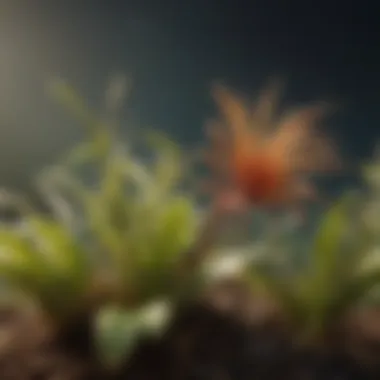
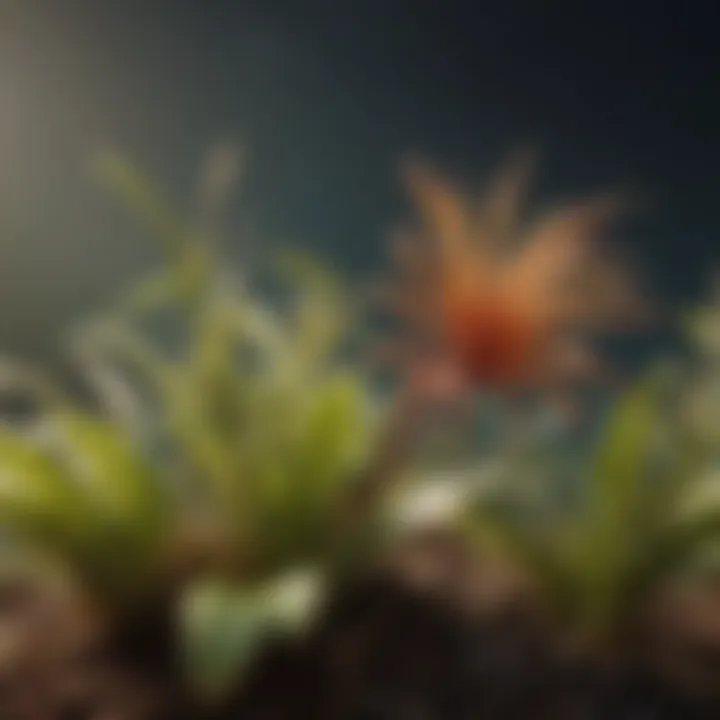
By adhering to the outlined safety and application guidelines, users effectively ensure their health and efficacy in pest management, paving the way for more sustainable gardening practices.
Common Mistakes in Using Insecticidal Soap
When utilizing insecticidal soap in pest management, some mistakes can diminish its effectiveness. Understanding these common errors is crucial for achieving optimal results. By identifying and avoiding these pitfalls, agriculture farmers and gardening enthusiasts can ensure they use insecticidal soap effectively.
Incorrect Dilution
The first mistake relates to incorrect dilution. Insecticidal soap needs to be mixed properly to work effectively. Many users might assume that more soap means better results, but this is not true. Overly concentrated solutions can harm plants instead of pests. For instance, if you dilute a commercial insecticidal soap, follow the manufacturer’s directions. Typically, recommendations involve mixing 2 to 5 tablespoons per gallon of water. This proportion must be adhered to avoid potential leaf burn or plant stress.
It's also important to recognize that homemade solutions can vary in their effectiveness and safety. Many people use dish soap thinking it is comparable, but it might contain additives that could harm plants. Therefore, it is advisable to only use products specifically designed for pest control.
Always test on a small area of the plant before applying broadly. This step can prevent unforeseen damage. If the plant reacts negatively, adjust the concentration accordingly.
Inappropriate Timing of Application
The second common mistake involves the timing of application. Applying insecticidal soap at the wrong time can lead to reduced efficacy. Ideally, it should be used during periods of low pest activity or stress on plants. The best times are usually early in the morning or late in the evening. These times help to avoid temperatures that can evaporate the soap too quickly.
It is also essential to avoid rain or water irrigation shortly after application. Insecticidal soap works best when it is left undisturbed on the plant surfaces. If washed away, its effectiveness diminishes. Thus, checking the weather forecast or opting for times with low humidity is critical.
"Proper timing and careful attention to the recommended dilution can significantly enhance the effectiveness of insecticidal soap."
In addition, ensure to observe pest activity closely. Waiting too long may allow pests to multiply, rendering treatment less effective. Regular check-ups combined with timely applications create a robust defense against pest infestations.
Regulatory Considerations
Understanding regulatory considerations when using insecticidal soap is crucial for anyone in agriculture or gardening. These regulations ensure that the products used are both safe and effective. Farmers and enthusiasts alike need to stay informed about the specific rules governing pesticide use in their regions. Compliance with these regulations is not just about following the law; it also means promoting health and safety in agricultural practices.
Local Regulations on Pesticides
Each region may have distinct laws regarding pesticide application, storage, and sale. It is vital to consult local regulations that may restrict certain products or dictate how chemicals can be applied. Familiarity with these legal requirements helps avoid potential fines and promotes the responsible use of pest management solutions. Local regulations often consider the environmental impact and human health factors, thus shaping appropriate usage guidelines.
- Types of regulations
- Common components
- Federal and state laws governing pesticide registration
- Local ordinances regarding application in residential areas
- Licensing required for commercial applicators
- Limits on pesticide use near water sources
By adhering to regulations, users can maintain not only compliance but also contribute positively to the ecological balance in their farming or gardening practices.
Labeling and Compliance Issues
Labeling is another significant aspect of regulatory considerations. The information presented on insecticidal soap labels provides essential details on the correct usage of the product. Labels indicate proper dosage, application instructions, and safety information. Failing to comply with the guidelines outlined affects efficacy and may lead to undesirable outcomes such as plant damage or ineffective pest control.
Compliance with labeling guidelines ensures both the effectiveness of insecticidal soap and the safety of the surrounding environment.
- Key elements on labels
- Consequences of neglecting labels
- Active ingredients and their concentrations
- Specific safety precautions and personal protective equipment needed
- Restricted areas and conditions for application
- Legal penalties for misuse
- Risks associated with unsafe application practices
In summary, the importance of understanding regulatory considerations cannot be overlooked. They serve as a framework for using insecticidal soap responsibly and effectively. Farmers and gardening enthusiasts should prioritize familiarizing themselves with local pesticide regulations and label compliance to achieve sustainable pest management.
Finale
The conclusion serves as a crucial element in this article by summarizing the key insights regarding insecticidal soap and its acquisition. Understanding where to buy this product helps both agricultural farmers and gardening enthusiasts implement effective pest management strategies. The insights gathered throughout the article emphasize the importance of selecting the right soap for specific pest issues, recognizing sources for purchase, and adhering to safety and application guidelines.
Summary of Key Points
In summary, the following key points emerged from our discussion on insecticidal soap:
- Definition and Composition: Insecticidal soap is created from natural plant oils or fats. It is effective at disrupting the cell membranes of soft-bodied insects, thus managing pest populations with minimal environmental impact.
- Types of Insecticidal Soap: Both commercial formulations and DIY options exist. Retailers provide different brands, each tailored for various gardening needs.
- Factors to Consider: Different pests require specific approaches. Plant types play a significant role in determining the soap's effectiveness and safety. Environmental impact is always a consideration when selecting any pest control method.
- Purchase Sources: Insecticidal soaps can be obtained from local garden centers, agricultural supply stores, online platforms, and cooperative extensions.
- Cost considerations: Prices vary among brands. Bulk purchases provide potential discounts, increasing accessibility.
- Safety Guidelines: The importance of personal protective equipment, correct application practices, and safe storage cannot be overstated to ensure that efficacy is maintained.
- Common Mistakes: Ensuring proper dilution and timing can greatly influence effectiveness. It is important to avoid these common errors to attain desired results.
- Regulatory Considerations: An understanding of local laws on pesticide use and proper labeling is essential for compliance and safety.
Encouragement for Sustainable Practices
It is essential to promote sustainable practices within gardening and agriculture. Insecticidal soaps provide a natural solution to pest problems. Beyond mere convenience, using these soaps signifies a commitment to environmentally friendly pest management. We encourage readers to:
- Access Knowledge: Take time to learn about different pest species and their respective controls. For instance, some pests may require unique treatments. Access credible resources such as Wikipedia or Britannica for accurate information.
- Experiment with DIY Options: Crafting your own insecticidal soap using household ingredients can be both cost-effective and rewarding. Use basic recipes, but always test on a small plant before wide-scale application.
- Engage with Community: Online platforms, like Reddit and Facebook, often host discussions among enthusiasts and experts. Engaging with these communities fosters learning and idea exchange.
Ultimately, the thoughtful use of insecticidal soap represents a step towards responsible gardening and farming. It empowers individuals to battle pests while considering the broader impact on ecosystems.



